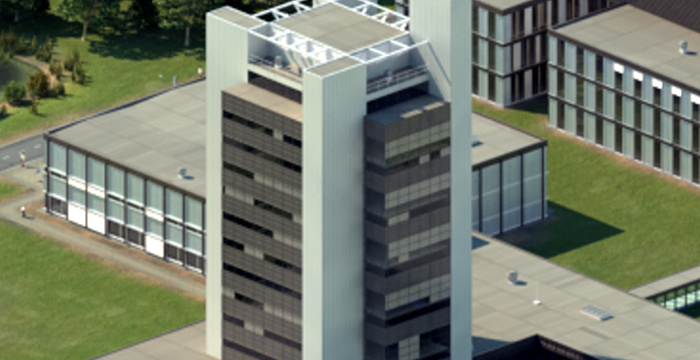I am an ambitious, open-minded and curious PhD interested in understanding catalysis at a fundamental level, testing catalysts in reaction systems that mimic realistic conditions and applying this knowledge to develop solutions for environmental problems. My PhD project focuses on the development of heterogeneous catalysts and a reactor system for NOx reduction in the exhaust gas treatment unit of cargo ship engines.
Please find more information on my PhD project under research and details about my career pathway up until now under education. Do not hesitate to contact me if you are interested in conducting thesis projects, internships or regarding collaborations.
Organisations
LNG-Zero Project
The LNG-Zero project aims for the development of zero emission ship engine to make maritime transport more sustainable. The project partners include TNO and TU Delft as well as several industrial partners such as VDL, Heerema, Shell, Conoship, Anthony Veder and more. The goal is to implement liquified natural gas (LNG) as ship fuel as it allows for a better climate performance than currently used heavy oil fuels. However, the combustion of LNG still emits CO2, a methane slip and NOx emissions. In the project work package after treatment the CPM and SPT groups in collaboration with TNO aim for 1) the oxidation of methane to CO2 (Martim, CPM) with 2) subsequent CO2 storage (Jayaram, SPT) and 3) reduction of NOx to N2 (CPM, my project).
NOx Reduction
The goal of my PhD research is the development of a robust and active heterogeneous catalyst which allows for the selective reduction of NO3- and NO2- into N2 in aqueous solution with Hydrogen as reducing agent. Major challenges are the suppression of NH4+ formation, the long term stability of the catalyst and minimization of mass transport limitations.
Additionally, a reactor concept that is suitable for large scale applications on cargo ships will be developed. For the integration in the entire exhaust gas treatment unit we closely collaborate with TNO Delft. The goal is to find a concept which allows for the continuous operation in stable conditions over month. This includes modelling an optimal balance between reactor size (costs and space on ship), amount of catalysts (costs and purification performance) and conditions (space on ship and purification performance). Based on our results, TNO will construct a pilot plant.
Bimetallic Catalyst Preparation
For the reduction of NO3- into N2 bimetallic catalysts are required. If conventional catalyst preparation methonds are applied, the the utilized metals often lack interaction which is a prerequisite for NO3- reduction. Therefore, we apply advanced preparation techniques which generate well controlled metal-metal arrangements and derive structure-activity relationships. Interplay of catalytic testing and extensive catalyst characterization allows us to understand the microscopic processes and enables to further improve the catalyst formulations.
Your Project
Student research projects may include e.g. development of controlled bimetallic heterogeneous catalysts, kinetic studies under semi-batch or contineous flow conditions, experimental and/or theoretical mass transport studies or development process and reactor models.
Motivated candidates with knowledge in chemical engineering, chemistry, material science or similar are very welcome to contact me regarding research projects!
Other contributions
J. Betting, Leon Lefferts, Jimmy Faria Albanese, Hydroxylamine: an overseen intermediate that brings into question nitrogen selectivity in metal-catalyzed nitrate and nitrite reduction, Chem. Commun., 2025.
T. Rösler, J. Betting, S. Püschel, A. J. Vorholt, W. Leitner, Solvent design for catalyst recycling of rhodium/amine catalysts via scCO2 exraction in the reductive hydroformylation of alpha olefins, Green Chem., 2022, 24, 6578 .
P. Huang, J. Betting, Song Tian, Leon Lefferts, Jimmy Faria Albanese, Modifying reaction rates and stimulus-responsive behavior ofpolymer-coated catalysts using aprotic solvents, J. Catal., 2023, 428, 115157.
I obtained my Bachelor degree in Chemistry at the Technical University of Dortmund (GER) with a thesis project in the Industrial Chemistry group of Prof. Dieter Vogt. Subsequently, I started my Master studies with a one year Erasmus+ stay at Leiden University (NL) where I followed the Energy & Sustainability track. My Master thesis project was conducted at the Max Planck Institute for chemical energy conversion in Mülheim an der Ruhr (GER) at the chair of Prof. Walter Leiter under supervision of Dr. hab. Andreas Vorholt. Within this project I developed and operated a high pressure setup to isolate alcohol products formed by homogeneously catalysed reductive Hydroformylation via scCO2 extraction (publication). Focus areas of my master program were catalysis, industrial chemistry/chemical engineering and sustainable chemistry.
After my master studies, I participated in a three month language program at Western Washington University in Bellingham (USA) which was funded by Joe and Anneliese Zauchner Scholarship. My PhD in the Catalytic Processes and Materials Group at the University of Twente started in May 2022.
Alongside my chemical education I have obtained several coaching licenses for athletics, specializing in middle- and long distance running. In that funciton, I provided coaching education courses for the regional athletic federation. From 2015 to 2023 I managed the athletic department of a local sports club with more than 200 members as head of sports. Currently, I coach semi-professional steeplechase, marathon and cross-country runners who are among the best in their respective categories in Germany.
I speak English, German and Dutch.
Address

University of Twente
Horst Complex (building no. 20), room Horstcomplex - Meander
De Horst 2
7522 LW Enschede
Netherlands

University of Twente
Horst Complex (building no. 20), room ME360
De Horst 2
7522 LW Enschede
Netherlands
University of Twente
Horst Complex Horstcomplex - Meander
P.O. Box 217
7500 AE Enschede
Netherlands